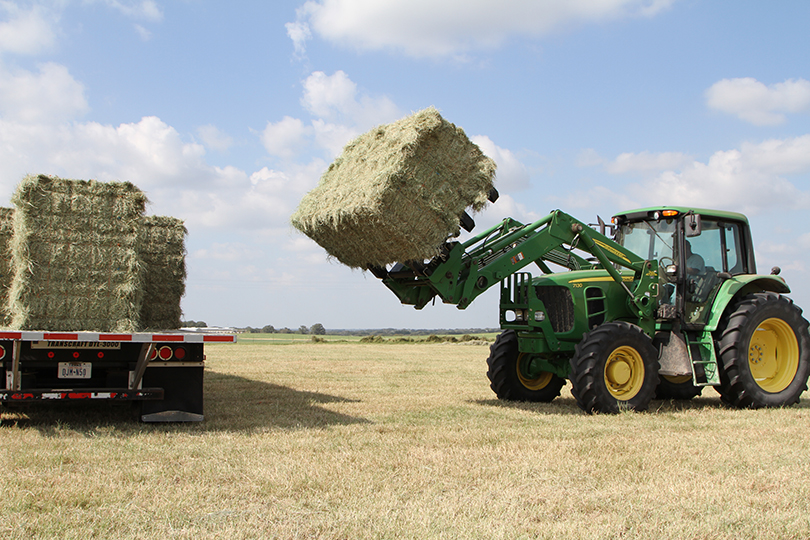By Shala Gean
Communications Specialist
Farmers and ranchers are urged to be extremely cautious of scams—both online and on the phone.
Agriculture isn’t immune to fraud, scams and other forms of criminal activity.
There has been a recent increase in scams targeting agriculture. According to law enforcement, attempts to steal livestock, hay or equipment using counterfeit checks is on the rise.
Most of these incidents followed a similar overpayment theme.
That’s also what happened earlier this spring when several South Texas farmers reported to the Texas Department of Agriculture that someone attempted to scam them under the guise of a hay sale.
Scammers sent a check for more than the amount of hay, telling the farmer the extra money was needed to cover taxes or shipping costs associated with the hay sale.
But it’s not.
After the victim wires the extra money from the check to the designated account, they discover the check from the buyer is worthless.
Ranchers are also targeted by similar scams for cattle or equipment.
In most cases, the scammer has no intention of making the purchase. The check is counterfeit and designed to look legitimate, so it can be cashed and the money wired.
After the supposed excess amount is wired, the money is lost.
It could take days or weeks from the time of the initial deposit to determine the document is fake. At that point, the depositor is responsible for any funds withdrawn from the check.
Other times, products are offered at a bargain price that’s usually too good to be true.
Scammers use technology to make false phone numbers and addresses, making it difficult for them to be identified.
The Better Business Bureau (BBB) urges people to be suspicious of overpayments and offers the following tips to help be aware of scams:
1. Don’t send money to someone you’ve never met
2. Don’t click on links or open attachments in unsolicited emails
3. Don’t believe everything you see
4. Don’t buy online unless the transaction is secure
5. Be extremely cautious when dealing with anyone you’ve met online
6. Never share personally identifiable information
7. Don’t be pressured to act immediately
8. Use secure, traceable transactions when making payments for goods and services
9. Whenever possible, work with local businesses that have proper identification, licensing and insurance
10. Be cautious about what you share on social media and consider only connecting with people you already know
If you are suspicious about a transaction, contact local law enforcement. The BBB also offers a scam tracker to allow people to investigate illegal schemes or fraud at www.bbb.org/scamtracker/us.
Reports can also be made to the BBB at BBB.org.

